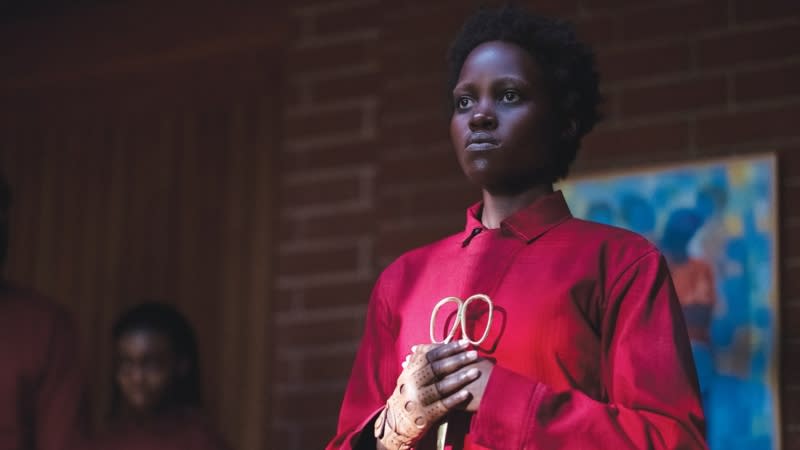Lupita Nyong’o offers a ‘heartfelt apology’ after ‘Us’ voice controversy

Lupita Nyong’o has issued a “heartfelt apology” after she was criticised by Spasmodic dysphonia groups for crediting the disability as an inspiration for her voice in Us.
Both the National Spasmodic Dysphonia Association and RespectAbility were appalled after Nyong’o told the New York Times she based the voice of Red, her doppelgänger character in Us, on Robert F Kennedy Jr, who suffers from the condition.
During her appearance on The View on Friday Nyong’o apologised and broke down what she had learnt from the controversy.
Read More: The babies who played Emma from ‘Friends’ were in Jordan Peele’s ‘Us’
“I met with people as part of my exploration with the condition, and I learned how difficult it is to have the disorder. So I am very aware of the frustrations and misconceptions and the misdiagnosis… I thought in speaking about it and mentioning it, it might shed light on the condition.”
“It’s a very marginal group of people who suffer from this. The thought that I would offend them was not my intention. In my mind, I wasn’t interested in vilifying or demonizing the condition. I crafted Red with love and care. As much as it was in a genre-specific world, I really wanted to ground her in something that felt real. For all that, I say sorry to anyone that I may have offended.”

RespectAbility responded in kind to Nyong’o’s comments, immediately accepting the apology.
“We appreciate Lupita Nyong’o’s heartfelt apology. We’re all on a learning journey to be sensitive to all marginalized communities whether it be race, gender, sexual orientation / gender identity, disability, religion or anything else.”
Read More: Jordan Peele says he can’t see himself ‘casting a white dude’ in the lead in one of his movies
“ Us – especially with Lupita Nyong’o as the lead and Jordan Peele as the writer/director – is opening up doors, and breaking glass ceilings for people of color and is a massive advancement for Hollywood as a whole.”
“We hope Nyong’o will use this experience to continue lifting up all marginalized groups including the 1-in-5 people who live with disabilities. In general, the Hollywood practice of using disability primarily to villainise people or to show them as objects of pity needs to end.”

 Yahoo Movies
Yahoo Movies 
